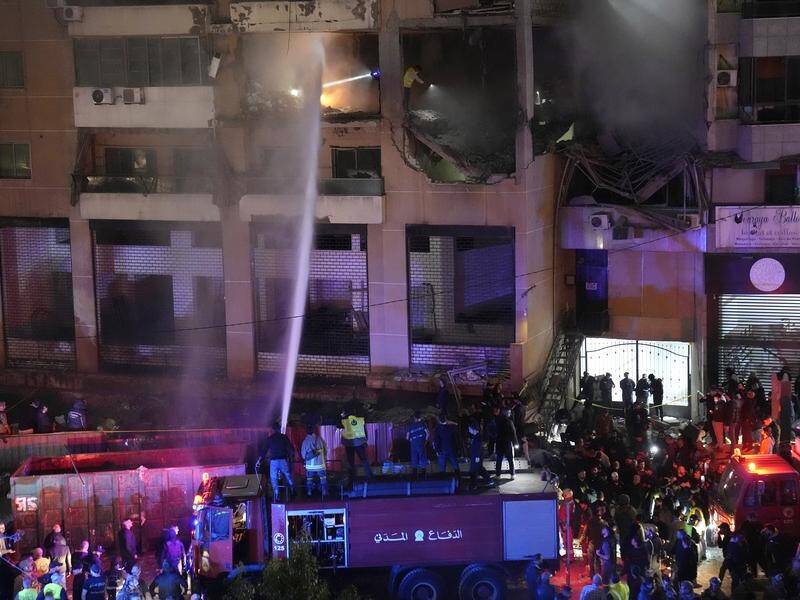Israeli drone attack kills Hamas Deputy Leader in Beirut

In a targeted strike on a Hamas office in south Beirut, Lebanon, Saleh al-Arouri, Deputy Leader of Hamas and co-founder of the Qassam Brigades, was killed by an Israeli drone attack.
The attack, which also claimed five other lives, underscores the escalating tensions beyond the Gaza Strip.
Hamas’ Al Aqsa Radio and Mayadeen TV confirmed the incident, reporting that the drone strike occurred on Tuesday.
The Lebanese state news agency revealed the casualties in the southern suburb of Daliyeh, stressing the widening impact of the Israel-Hamas conflict.
Hezbollah, a strong Hamas ally in Lebanon, has been engaged in frequent skirmishes with Israel along the southern border since the outbreak of the Gaza war in October.
Lebanon’s caretaker Prime Minister Najib Mikati condemned the drone attack, calling it a “new Israeli crime” and warning against Lebanon being drawn into war.
While Israel neither confirmed nor denied responsibility, Mark Regev, an adviser to the Israeli prime minister, said the strike targeted the Hamas leadership, not the Lebanese state.
Regev told MSNBC TV that Israel “has not taken responsibility for this attack. But whoever did it, it must be clear – this was not an attack on the Lebanese state … Whoever did this did a surgical strike against the Hamas leadership”.
The late Saleh al-Arouri had been accused by Israel of orchestrating Hamas attacks in the West Bank.
Imad Harb, Director of Research at the Arab Center Washington DC, said there would be increased Hezbollah attacks on Israel but suggested both sides are cautious not to escalate into a full-blown conflict.
Harb also mentioned a potential uptick in Hamas attacks from southern Lebanon, emphasising a delicate balance in the region’s dynamics.
“It (Hezbollah) may also respond by allowing more Hamas attacks from southern Lebanon on Israel. And definitely, it’s going to be more vigilant regarding its own leaders,” Harb told Al Jazeera.
“I think the Israelis are counting on Hezbollah being a little more cautious. That’s why they did what they did,” he added.







